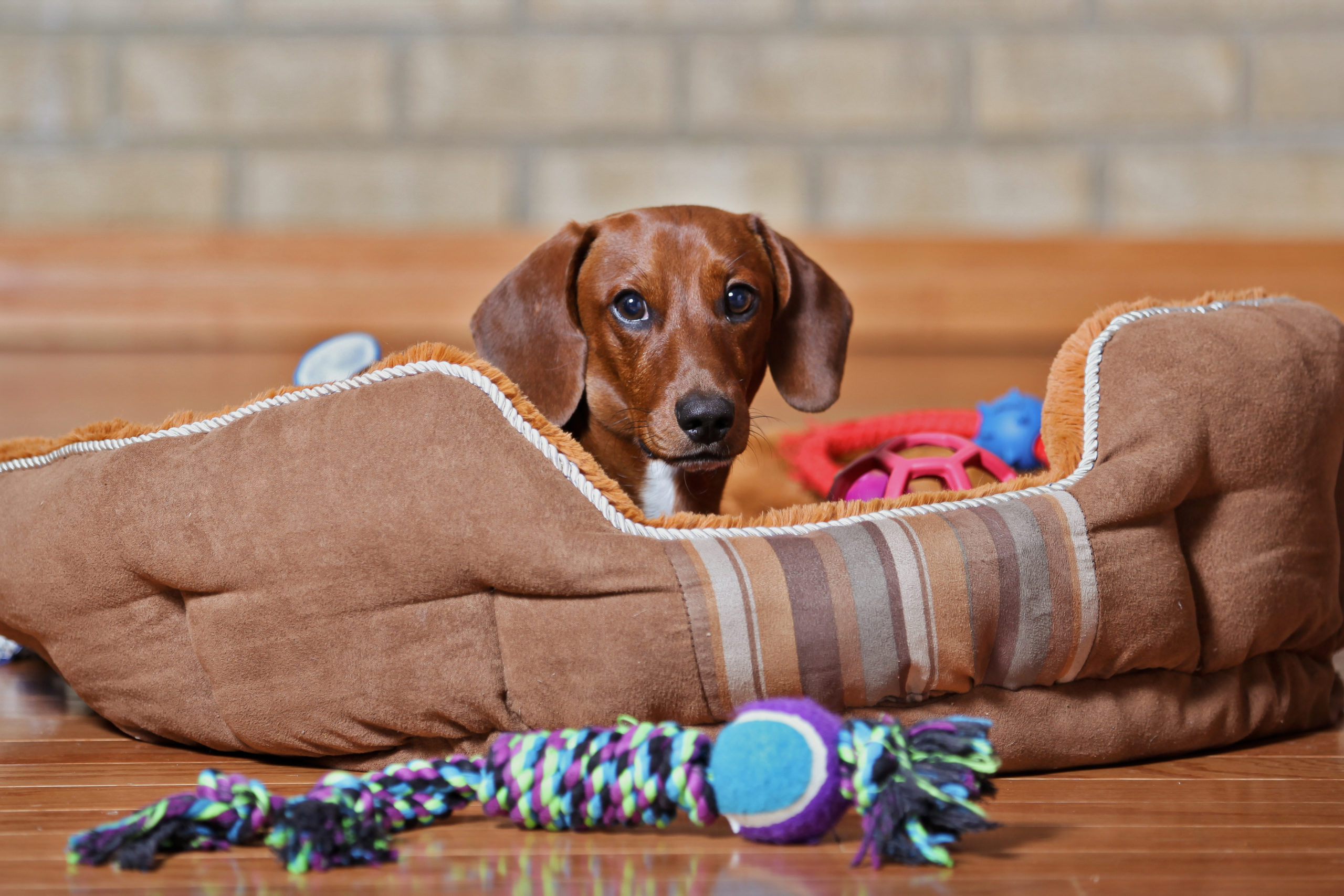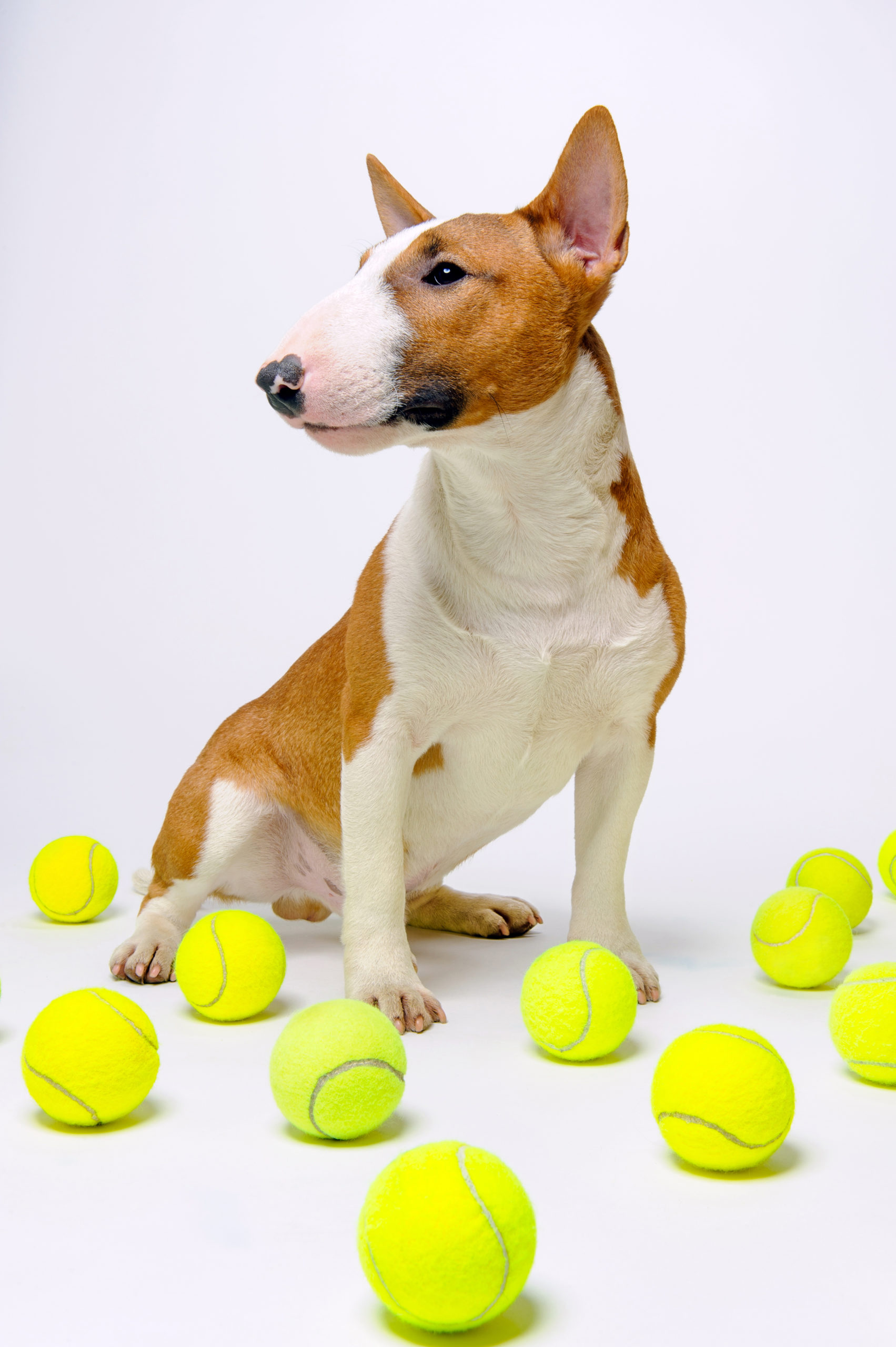
Dogs, particularly teething puppies, have an innate desire to gnaw on things, and if you don’t provide safe chewing options, your pup may latch onto the wrong toy. Pet store bins are filled with chew toys claiming to be safe, but many can lead to broken teeth, enamel damage, and oral injuries. Our dentistry and oral surgery department commonly sees pets who have suffered injuries while chewing on toys their owners thought were safe. Fortunately, our board-certified veterinary dentists are on hand to treat oral injuries, but your pet will be much happier without a painful mishap. Here are four chew toys to stay away from, and pet-safe suggestions that will keep your teething pet engaged.
Meat bones may seem like a safe, natural option for entertaining your puppy, or scraping tartar build-up from your dog’s teeth, but bones are a dangerous choice for many reasons. Any hard toy—bone is one of the body’s hardest materials—can fracture a tooth, causing pain and discomfort. Your dog may become so focused on getting every last bit of delicious marrow from the bone’s center that they disregard their cracked or broken tooth until it later starts throbbing, or becomes infected. Ring-shaped bones can catch behind your pet’s canine teeth, entrapping the end of the lower jaw, and requiring removal under anesthesia. Some bones can be chewed into small pieces your dog may ingest, which can lead to gastrointestinal upset, or a life-threatening intestinal blockage. Poultry bones are also problematic, as they can splinter and puncture your dog’s stomach or intestinal wall.
Instead, give your dog this chew toy: If your dog loves licking every last flavor morsel from a bone, purchase a Kong toy, and stuff it with peanut butter, or a mixture of your dog’s favorite canned food and kibble. A stuffed Kong can provide hours of chewing fun, especially if you freeze it for a few hours. This is a great option if you need to entertain your mischievous puppy while you get some housework done, or need to leave them in their crate for a few hours while you are away.

A game of fetch with a tennis ball seems pretty innocent, right? Wrong—especially if your dog likes to steal the ball, and gnaw on it. A tennis ball’s fuzzy coating is abrasive, and repeated chewing can wear down your pet’s tooth enamel. Balls that have collected sand or dirt are worse, as these materials increase the ball’s abrasiveness, and cause more damage. Enamel damage occurs gradually, and often goes unnoticed by owners until the damage is severe, and the pet is suffering with a painful dental sensitivity.
Instead, give your dog this chew toy: A game of fetch is a great way to keep your energetic dog’s boundless energy under control, but choose a pet-safe ball that won’t damage teeth. A hard rubber ball is a good alternative, so long as your dog cannot chew it into pieces they can swallow.
Cow hooves are made of keratin, one of the body’s hardest compounds, to protect the delicate foot structures they encase. Pet stores sell hooves as a natural chewing option for pets, but chewing on them can lead to chipped, cracked, or broken teeth. Hooves can also splinter as your pet chews on them, and the sharp pieces can puncture their mouth or digestive tract.
Instead, give your dog this chew toy: If you want a natural chew product for your dog, rawhides are a safer option. Made from cow skin, rawhides are much softer, but tough, and provide many hours of chewing. Give your pet a rawhide only when you can supervise them, remove it when it becomes small enough to swallow, and avoid rawhides with added flavorings, which can cause gastrointestinal upset.
Many pet stores advertise deer antlers as a safe chewing alternative to bones, but they are made of a material similar to, and as hard as, bone. Antlers also contain a soft center similar to a bone’s marrow cavity that your dog may access by chewing up the surrounding bone, possibly leading to tooth fractures and ingestion of small, hard pieces. Giving your dog an antler is no safer than tossing them a cow femur, as both can cause significant tooth damage.
Instead, give your dog this chew toy: If you choose bones and antlers to keep unsightly tartar from accumulating on your dog’s teeth, choose a product approved by the Veterinary Oral Health Council (VOHC) (e.g., C.E.T Enzymatic Hygiene Chews), that has been proven to prevent plaque and tartar buildup. You can also give your dog a hard rubber bone—but one soft enough to be indented with your fingernail—with a textured surface, to wear away developing plaque.
Your pet’s teeth should last a lifetime, so protect them by choosing pet-safe chewing options. Schedule regular dental evaluations and cleanings with your family veterinarian, and if your pet develops a dental injury, such as a broken tooth, contact us to schedule an appointment with one of our board-certified veterinary dentists.